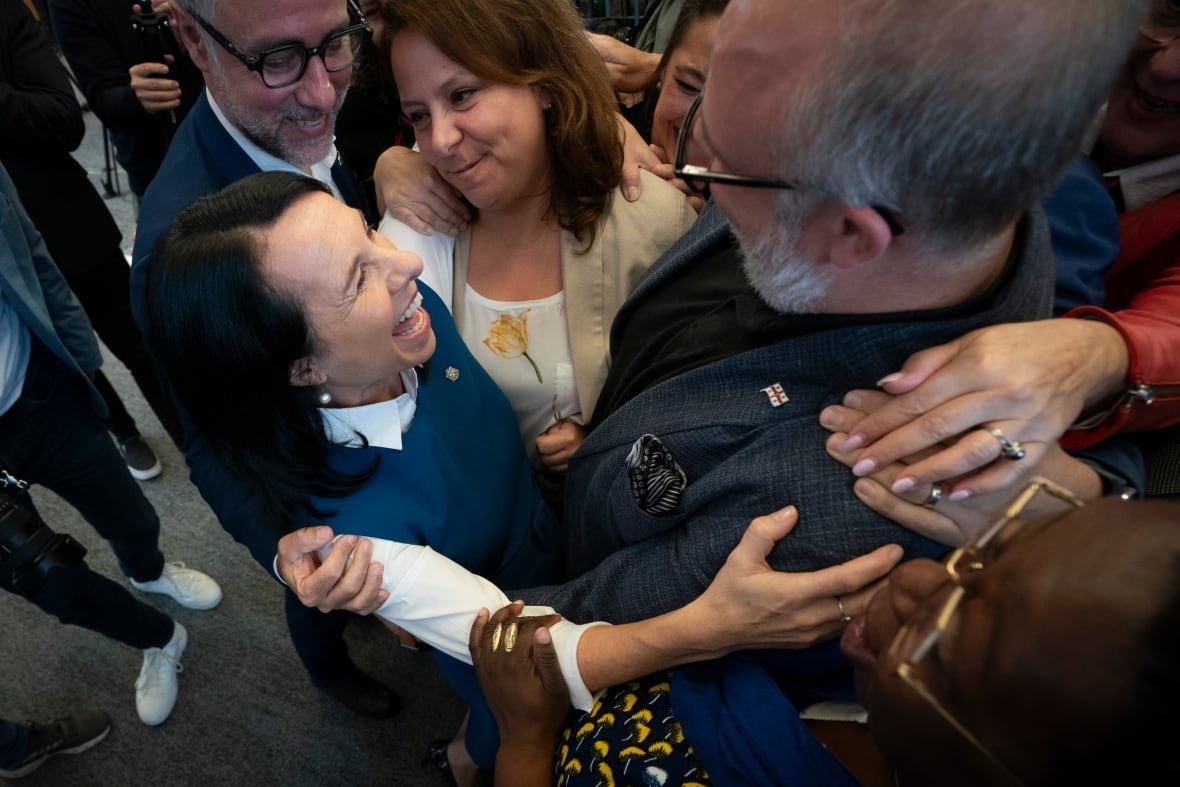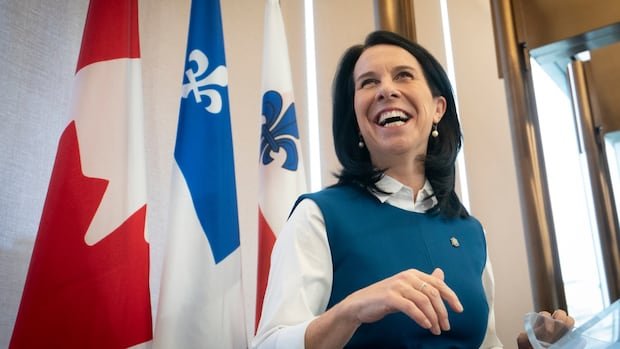Montreal Mayor Valérie Plante announced on Wednesday that she would not seek a third term in office.
Plante, who gained the mayoralty in 2017 after defeating incumbent Denis Coderre, was re-elected in 2021.
But now, she said, after seven years at the helm of the city, the job had taken its toll.
“It’s a heartbreaking decision, because I love my job,” she said. “I realized I was not able to guarantee Montrealers four more years with the same level of energy that I have always given.”
Before reading her statement explaining her decision to leave politics, Plante smiled at the crowd of assembled reporters and staff at city hall, and cracked a few jokes.
She said she would continue to serve as mayor until the end of her mandate next year — and would do so with the same energy and enthusiasm she had always brought to the job.
Time as mayor a ‘great privilege’
Plante said the decision was not tied to her health. She said she was “doing very well,” and was leaving the office in the same way she entered it: on her terms with her head held high.
She said it was a “great privilege” to be mayor, but noted that it “comes with responsibilities and sacrifices.”
Her tenure has been marked by prioritizing expansions to public transit, making some streets pedestrian-only, building more cycling infrastructure and investments in social housing — goals she characterized as “making the city greener, safer and more resilient.”
As recently as last month, Plante said she would seek another mandate.
But, in an interview in July, Plante explained it was a heavy burden to serve as a representative for the entire city.
Plante, the city’s first female mayor, said she had faced “extremely hard moments of doubt.”

“When you put your face on an election poster, it’s not nothing,” said Plante, who has also published a graphic novel about her political journey. “It means you’re ready to challenge yourself. It’s not easy, for sure. But at the same time, I think the results are worth it.”
In September, Plante closed comments on her social media posts, saying her replies had been dominated by abusive language for months.
Plante, 50, was born in Rouyn-Noranda, Que., but moved to Montreal at 19, where she earned university degrees in anthropology and museology.
She said the city has been “her world” for the past 30 years and she was proud of the contributions she had made to it.
The next municipal election is to be held on Nov. 2, 2025.
Politicians react
Politicians across the political spectrum — Plante’s allies and rivals — weighed in on her announcement.
Premier François Legault, with whom Plante often clashed, thanked her in a post on X. “Her love for the city was obvious throughout her political career. I wish her the best of luck with whatever comes next,” he wrote.
Aref Salem, the head of the Official Opposition and a frequent Plante critic, tried to position his party, Ensemble Montréal, as ready to take over from Plante.
“I want to thank Valérie Plante for her engagement since she was elected, despite our numerous disagreements on the management of construction sites, homelessness, public security and the state of services,” he said.
Bruno Marchand, the mayor of Quebec City who shares many of the same political priorities as Plante, said she had left her mark on Montreal and the province.
“She has initiated great changes and she has made the whole of Quebec shine,” he wrote.”Sharing your path has been a real privilege.”














